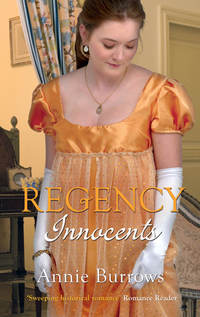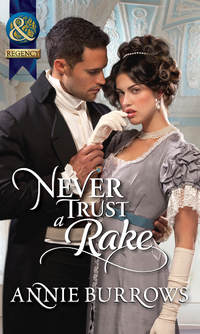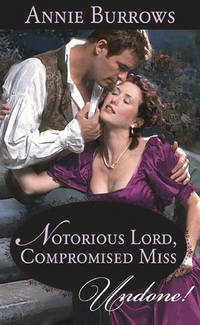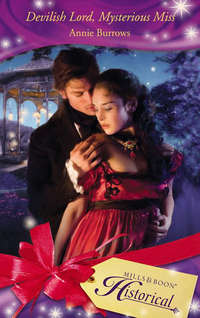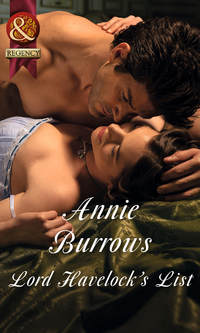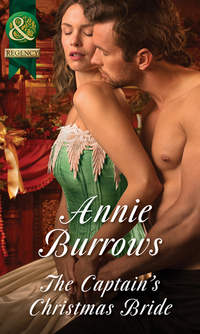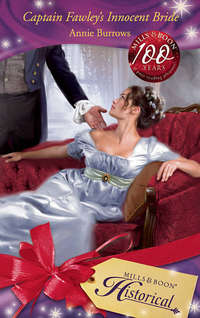
Полная версия
Four Regency Rogues
Lady Brandon was not the only one; every mama of every single young lady was doing the same. Standing on the sidelines, Charlotte could see it happening, and wondered what the outcome might be. Thinking about it gave her a vague feeling of discontent, which she refused to acknowledge was anything but irritation with the man. Occasionally, she found herself face to face with him. She would smile politely and pass the time of day with him before moving on, doing her best to ignore the fluttering of her heart.
And he, surprised by her sudden coolness after that night of her party when he thought they had established a rapport, would answer her in like manner and watch her proud back retreating from him. He found himself remembering his half-jocular remark—‘You have too much money and I have too much rank to find true love’—and wondered how accurate that was. She had built a wall around herself as impenetrable as the wall around Amerleigh Hall, determined to keep everyone out. And yet Tommy Biggs had found a way through her defences, along with other children in the village, which must mean she was not as hard as she would have him believe. If only he could crack that shell as they had.
‘You know, you ought to do some entertaining,’ Lady Brandon told Charlotte one Sunday afternoon, the only day of the week on which Charlotte did not go to Scofield or up to Browhill. It was the only day on which her ladyship could be sure of finding her at home. Sitting in the drawing room at Mandeville, sipping tea and nibbling cake, her friend evidently had something to say and was determined to say it. ‘You have this wonderful house and no one ever sees it, except the outside and that from a distance.’
‘I am entertaining you. And the Reverend and Mrs Elliott come and Mr Edwards…’
‘Yes, but they are not society.’
‘Neither am I.’
‘But you could be, if you made the effort.’
‘Why should I?’ She knew she was being stubborn, but ever since the return of Roland Temple she had been feeling fidgety, conscious that there was something missing in her life and yet afraid to face up to it.
‘You will become an antidote if you do not. A recluse. And for what? To acquire yet more wealth? What good is that to you? You have more than enough already.’
‘My goodness, Catherine, you do not mince your words, do you?’
‘I hope we have been friends long enough to speak plainly to each other, my dear. You used to go out and about, but I have noticed lately that you seem to prefer your own company. It cannot be good for you. You are still young. You should learn to enjoy yourself.’
Charlotte looked hard at her, making the poor woman blush. ‘What has brought on this sudden interest in my welfare?’
‘I have told you. You are working too hard and looking a little pale.’
‘So I must work even harder to entertain people with whom I have nothing in common.’
‘I will help you. You could give a concert, or a ball…’ She paused. ‘I have given a dancing soirée and Lady Gilford has held a Victory Ball—who else is there hereabouts to put on anything grand but you? Amerleigh Hall is not yet ready, though his lordship said he would hold a ball when it was. But we cannot wait for that.’
It occurred to Charlotte that her friend was running out of ideas for entertaining the Earl and throwing Martha in his path, and had suddenly thought of Mandeville. She smiled. ‘I see. Who would come?’
‘Why, everyone, especially if you invited the Earl. It would gain you an entrée into society if he were to accept.’
Charlotte laughed aloud. ‘If I know his lordship, he will not consent to be used in that manner. He is not a fool, you know.’
‘I did not say he was. But he seems to accept almost every other invitation. You are the only one who has not entertained him.’
It was obvious to Charlotte that her ladyship did not know about the party at the mill or else she discounted it. ‘I will think about it.’
Having succeeded in her aim, her ladyship took her leave, and Charlotte sat on, thinking dreamily of making her name as a hostess, of being accepted in society, of being beautiful and sought after. And then she pulled herself up short. It was only a dream and dreams had no substance; she would do better to go over the report the mine engineer had sent her about the new level. She would never have begun it if the Earl of Amerleigh had not come back, poking his nose into her business. His long, handsome nose. Why could she not get him out of her head? Why did everyone have to keep talking about him, reminding her that he had kissed her hand and gazed into her eyes and something had passed between them that she could not define, something that kept her awake at night and would not go away?
She stood up and began pacing the room. It was a very large room, tastefully decorated and furnished. A collection of valuable paintings graced its walls and a display cabinet in the chimney alcove was full of the porcelain her father had collected. At the end of the marble-floored hall was a huge ballroom and opposite that an oak-panelled dining room. The dining room was only used when she gave dinner parties for her managers and other business people, otherwise she ate alone in a smaller room nearer the kitchens. As for the ballroom, that had never been used for its intended purpose that she could remember, though Mrs Cater had once said her mama used to give balls in the days before she was born. ‘And very grand affairs they were too,’ the cook had said. ‘Your mother was so beautiful, so gentle and kind, everyone loved her, God rest her soul.’
‘I wish I had known her,’ Charlotte had said wistfully.
‘’Tis a pity you never did, but there, it was God’s will to take her from us. You are very like her, you know.’
‘Am I? How?’
‘In looks and on account of caring for those less well off. She could not bear to see a child with bare feet and would buy up a whole shop full of shoes and boots and take them to the village for everyone to help themselves. Your papa used to laugh about it, but he always let her have her way.’
Papa laughing! That was something Charlotte had rarely witnessed. For the first time in her life she felt utterly alone. Catherine Brandon had unsettled her, as if she had not been unsettled enough as it was! She left the room, walked along the hall and entered the ballroom, all of eighty feet long and thirty wide, and stood looking round her. Empty. Huge and empty. Nothing but emptiness. Was that symptomatic of her life? Hurriedly she turned on her heel and went back to that mine report.
Roland was inspecting the new carriage horses, which had just arrived. Travers, who was knowledgeable about horses, had helped him choose them, a couple of well-matched sturdy greys with white tails and manes. The family carriage had been cleaned and repainted black with the Temple crest on the door, and now the horses were here, he could go out and about in a manner befitting an Earl. He did not mind so much for himself, but his mother had missed being able to order out the coach and pay calls and he wanted to please her. He had just watched the horses being led to their stalls when the sound of a rider trotting into the yard made him look up. A man in the uniform of a Captain of Hussars was entering the yard.
‘Miles Hartley,’ Roland said, coming forward to shake his hand as he dismounted. ‘Why did you not tell me to expect you?’
‘I was unsure of being able to leave until two weeks ago and then I decided to take my time and see a little of the countryside on the way.’ The Captain was tall, though not as tall as Roland. His face was tanned and his hair black. He had curly side whiskers and dark, humorous eyes.
‘You are very welcome. Come indoors and I will order refreshment for you. Corporal, see to the Captain’s horse, will you? And then ask Mrs Fields to come to me.’ He led the way, taking his visitor in through the front door, across the wide hall and into the drawing room. They had barely seated themselves on the new sofas when his housekeeper appeared.
‘Your man said you wanted me, my lord.’
‘Yes, we have a guest. Please bring him some refreshment, then make up a bed in one of the spare rooms.’ He turned to Miles. ‘You will stay?’
‘It will be a pleasure.’ He gave Mrs Fields a smile that crinkled up his eyes and revealed perfect white teeth. She flushed with pleasure and bobbed a curtsy before leaving to obey her instructions.
‘Tell me, what news?’ Roland asked, as she disappeared. ‘What have you been doing?’
‘Administration work in the War Department, transporting troops home for discharge, bringing back unused supplies and armaments, making arrangements for Lord Wellington’s return to the capital. He is in Paris at the moment, but there’ll be a great to-do when he comes home, you can be sure. But until he does, there is a lull in the business and I decided to take advantage of it to come to see you.’ He looked about him, taking in the newly refurbished room. ‘Didn’t know you had a place like this, Temple,’ he said.
‘I have only recently come into it. It has been run-down, but is coming round now. Still a lot to do, though.’
‘What’s this about deaf children?’
Roland told him about Tommy Biggs and his idea for teaching him signs. ‘He was born deaf so I do not think he can be cured, but if only he could learn to communicate, his life would be so much better,’ he finished. ‘That is why I thought of you. I know you dealt with soldiers, but surely the principle is the same?’
‘Yes, but a great deal depends on the receptiveness of the child. I should need to see him before I decide.’
‘Of course. When you have eaten I will take you to meet him.’ He paused, wondering how to go on. ‘I have no idea what remuneration you would require. The family is very poor, but I could undertake a small salary.’
‘Let us talk about that later,’ Miles said as Mrs Fields returned.
‘I’ve put everything in the dining room, my lord,’ she said, bobbing.
Roland conducted his guest to the dining room. This was furnished with a table, six chairs and a sideboard and little else. They looked lost in that huge room. ‘As you see, there is still much to be done,’ Roland told him.
The food, though, was good and Miles did it justice before the two men set out on horseback for the village.
They had dismounted and were approaching the Biggs’s cottage when they met Charlotte. She was wearing her strange riding habit, but as she was on foot, the wrapover skirt covered her breeches. She had a basket on her arm, evidently making for the same destination. They stopped and eyed each other warily, each wondering what the mood of the other might be. Avoiding the Earl of Amerleigh when she ventured into the village was almost impossible, she had discovered, but then why should she need to? Stiffening her shoulders, she smiled. ‘Good afternoon, my lord.’
‘Miss Cartwright, your obedient. May I present Captain Miles Hartley. Captain, Miss Charlotte Cartwright, a neighbour.’
‘Captain Hartley. Are you the gentleman who might be able to help Tommy?’ Charlotte smiled and offered her hand, more the gesture of a man than a lady, who would have bent her knee and lowered her gaze.
Roland was used to her ways, but for a moment Miles was taken aback, then he grasped the hand. ‘We shall see. I have come to meet the little fellow.’
‘I do hope you can do something for him. I have promised the Earl my support in this, and as I know the family well, I shall be interested in what you think.’
‘Then why not come in with us?’
‘No, their house is very tiny, there will certainly not be room for three of us. I shall leave you to it. But come to Mandeville when you have finished examining the boy and let me know what you decide. I shall be pleased to offer you tea.’ She was speaking to the Captain, but was very aware of the man standing silently beside him. The Earl might have caused him to come, but she felt every bit as involved, more so because the Biggs family had been a pet project of hers long before his lordship appeared on the scene.
The Captain bowed. ‘I shall be delighted, ma’am.’
She handed the basket to Roland. ‘Please give this to Mrs Biggs.’ And then she left them to make their way up the garden path and knock on the door of the tiny cottage.
Charlotte had left Bonny Boy at the King’s Head on the other side of the green, but she was soon in the saddle and riding swiftly back to Mandeville. Her exchange with the Earl had been minimal, but it was nonetheless disturbing. She really must learn not to let him upset her. She was not a simpering schoolgirl, not even a girl at all, but a woman of three and twenty and she ought to be able to control her feelings.
Once home, she changed into a plain silk gown and paced about her first-floor sitting room, wondering if Roland would come with his friend. She had not specifically excluded him, but neither had she included him in the invitation. She was answered two hours later when both men rode up the drive and dismounted at the door. She saw them from the window, though she was careful not to let them see her. Heaven forbid they should think she was watching for them! She went down to the drawing room and sat down with a London newspaper in her hand until a footman came to announce them. She put it down and rose to meet them, ordered tea to be brought in and invited them to be seated.
‘Mrs Biggs asked me to return this,’ Roland said, offering her the basket he had been carrying. ‘She was effusive in her gratitude.’ He had never been inside Mandeville before and was struck by the opulence, the sense that no expense had been spared in its creation. The furniture was of the very highest quality, the sofas well upholstered, the carpets thick and the curtains well hung, the pictures and ornaments priceless. But it was too perfect; there was no warmth, no feeling that the house was lived in. It was simply a showcase for wealth. But he could understand why she would look down on Amerleigh Hall, the sprawling mish-mash of styles, with its rattling windows and draughty corridors. He could not imagine children tearing about Mandeville, sliding down the banisters, playing ball in the vast hall, as he had done at Amerleigh as a child.
She put the basket on a table and sat down again and they seated themselves opposite her. ‘How did you get on with Tommy, Captain?’ she asked.
‘He is very small,’ he said.
‘Of course he is.’ She laughed. ‘He is only six years old.’
He smiled ruefully. ‘I am used to soldiers, ma’am, little children are strangers to me.’
‘Oh, dear, then you do not think you can help?’
‘I did not say that, Miss Cartwright. I am willing to try, but I shall be learning as well as the boy.’
‘But you will need to teach his parents and siblings too, so they can understand him and he them.’
‘Of course. I notice they comprehend much of what he is trying to convey already. I think the way forward is to incorporate the signs he has already developed—no sense in asking him to learn new ones for familiar things. He is not able to spell, so it is no good trying to teach him letters. That will come later, at a more advanced stage. I need to think about it carefully.’
‘Surely many of the soldiers you taught could not read and write?’
‘That is perfectly true, but the words they needed to use are very different from those of a child. It is a challenge, a very big challenge.’
‘I am sure you are equal to it, Captain,’ she said, as the tea things were brought in and she busied herself with the teapot.
Roland watched the two of them dealing together so amicably and a strange sensation of unrest came over him, as if something he had within his grasp was slipping from him. ‘You will need a schoolroom,’ he said to Miles. ‘You cannot teach in the cottage with Mrs Biggs busy about her cooking and housework. You are welcome to use the schoolroom at Amerleigh. Kit it up with whatever you need.’
‘That might do for the time being,’ Charlotte said. ‘But in the long term, my lord, you will want it yourself.’
‘I am not about to go back to school,’ he said, laughing.
‘No, but you will marry soon and have children, then you will need it for them.’ She did not know why she said that. It was impertinent and she deserved a put-down. Why did she always invite his ire? It was as if she needed to scratch an irritating itch and, having scratched, was left with a sore place.
‘That is not imminent, Miss Cartwright.’ He was being carefully polite and that goaded her to scratch again.
‘No? I have heard you were about to make an offer.’
‘Then will you please tell your informant she is mistaken,’ he said firmly.
Bemused, Captain Hartley looked from one to the other and wondered how a simple conversation about a little deaf boy had suddenly become a cat-and-mouse game. ‘I am sure the schoolroom at the Hall will do very nicely for a start,’ he said.
They both turned towards him as if suddenly remembering he was there. ‘That’s settled, then,’ Roland said. ‘If all goes well, I should like to spread the word to other deaf children and their parents, make a little school of it.’
‘Let us see how it goes with one pupil first,’ Miles said.
The moment of dissension passed and they drank their tea and ate the bread and butter and the little cakes Mrs Cater had provided and Charlotte asked the Captain about his war experiences and showed herself to be far more knowledgeable than most ladies about the political situation. She agreed with Roland that a man like Napoleon Bonaparte would not be content with a life spent quietly on a little island. When he had capitulated, he had promised his followers he would return with the violets. ‘Have the allied powers made sure he cannot?’ she asked.
‘I doubt it,’ Miles said. ‘He has been allowed to keep a regiment and a ship and that is madness.’
‘Would you go back to the army, my lord, if he did show his face again?’ she asked Roland.
He smiled, remembering their previous conversation on the subject of his leaving. ‘It depends,’ he said carefully. ‘There is a great deal keeping me in Amerleigh at the moment.’
For once she did not rise to the bait, but sipped her tea and thought of Amerleigh without him. She would miss him if he ever left, but the reason she gave to herself, that she enjoyed their battles, was not the true one. Her thoughts went to that evening when he had kissed her hand and made her feel like a woman for the first time in her life. That was what she would really miss.
After the men had taken their leave and ridden away, Charlotte wandered into the ballroom and stood there a moment, then began humming a tune and dancing all by herself. But in her imagination she was not alone; the room was crowded and Roland was there and they were dancing together, hands linked, bodies moving in unison as they had at Lady Brandon’s soirée. ‘I will do it,’ she said, coming to a standstill and speaking aloud. ‘He will learn to rue the day he called me a hoyden.’
Organising her workforce, instructing men and women in their day-to-day tasks, was child’s play to her. But organising an entertainment beyond a simple dinner party was something she had never done and the prospect daunted her. Nor had she any idea how to act the lady, to charm as a hostess. For that she needed help. There was Lady Brandon, of course, but she did not think her ladyship would serve; she had her own motives and they did not accord with Charlotte’s. She went back to the drawing room and sat at her davenport to write a letter to her great-aunt, Lady Emily Ratcliffe.
‘What an extraordinary woman,’ Miles commented, as they turned out of the gate and, disdaining the road, made their way over the hill back to Amerleigh.
‘Yes.’
‘Wealthy, wouldn’t you say?’
‘Very.’
‘I suppose you grew up together?’
‘We were neighbours, of course, but I was at school and Oxford, then the army, and though I saw her about the village when I was at home, I cannot say I really knew her.’
‘She’s not a member of the gentry.’
‘No, though I believe her grandmother on her mother’s side came from a good family. Her mother died when she was born and her father brought her up. He died two years ago and left her everything.’
‘Quite a catch for someone, then,’ Miles said.
Roland looked sharply at him, wondering what was behind the remark. ‘I suppose so, but too self-willed for my taste. She would want to wear the breeches in any marriage.’
‘Depends how you go about taming her, I should think,’ Miles said thoughtfully.
‘You think you could do it?’
‘If I wanted to, I could.’
Roland laughed and spurred his horse into a gallop to end a conversation that was making him feel decidedly uncomfortable. Miles smiled to himself and followed suit.
Miles left two days later to go back to Horse Guards where he intended to obtain his release and then return. He would be on half-pay and that, together with the small stipend Roland was able to provide, was enough for his needs, he said, especially as he was to live at Amerleigh Hall for nothing. He came back a week later to prepare the schoolroom for its new pupil. It was on the second floor of the oldest part of the house and every day he took himself up there and set about learning all he could about sign language.
One day Roland found him there, sitting on an old sofa, hands in front of him, moving arms and fingers this way and that, studying a book and drawing the signs on a slate. ‘I think I should learn a little of that,’ he said. ‘I want to talk to young Thomas too.’
‘I will teach you when I know enough myself.’
‘I thought you invented it.’
‘No. It was not invented, it grew. It was developed many, many years ago by monks who had taken a vow of silence and wanted to communicate with each other. I have no doubt it is still used for that purpose. Who decided it could be used by the deaf in the general population I do not know. I was sent to a Catholic school and learned some of it from the abbot who ran it and that fired my interest.’ He smiled ruefully. ‘I do not think Tommy would be interested in religious words and practices, so I must adapt it for a small boy.’
‘You must not spend all your time up here, you know. What about coming out for a ride? I will show you round my domain.’
Miles put the book away. ‘I shall enjoy that.’
Half an hour later they were riding through Amerleigh towards the hills, carpeted in red, pink and white heather, prickly yellow gorse and bright green bracken, with here and there the delicate blue of a harebell, so that the land was vibrant with colour. Familiar as he was with the sight, it always brought a lump to Roland’s throat. Together with the house, it was what he had thought of most when away from home, especially poignant when he had not been sure if he would ever see either again.
They rode round in a large circle, taking in the boundary of the estate and finishing on Browhill. Here there was noise and clatter and dust. The new adit, which Roland had seen started, disappeared into the hillside. The big wheel was turning, which suggested men were working underground and a stream had been diverted and was running through the washing shed where two youths were working, separating the lead ore from the dirt and rubble that came with it.
‘Is this part of your domain?’ Miles asked.
Roland chuckled. ‘I believe so, but Miss Cartwright has other ideas. We are in dispute over it.’
As he spoke, Charlotte herself came out of the building that served as an office. ‘Good day, gentlemen,’ she said. ‘What can I do for you?’
Roland noted that she was in a benign mood; Miles noted that she was wearing a strange outfit, he might have called mannish if it were not for the skirt. ‘Good day, Miss Cartwright,’ Roland said, giving her a slight bow from the saddle. ‘We were out for a ride…’
‘And chanced to end up here.’ She laughed. ‘What is it about this place that draws you so, my lord?’
He was not going to rise to that bait. ‘How is the new level going?’
‘Very well, my lord.’ She turned to Miles. ‘Are you back to stay, Captain?’



